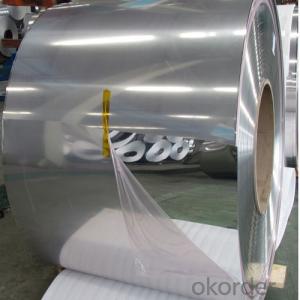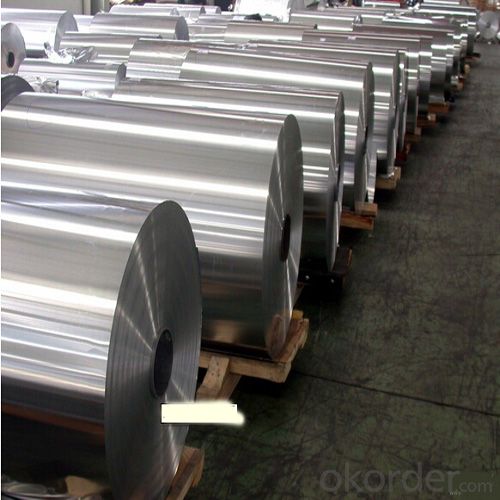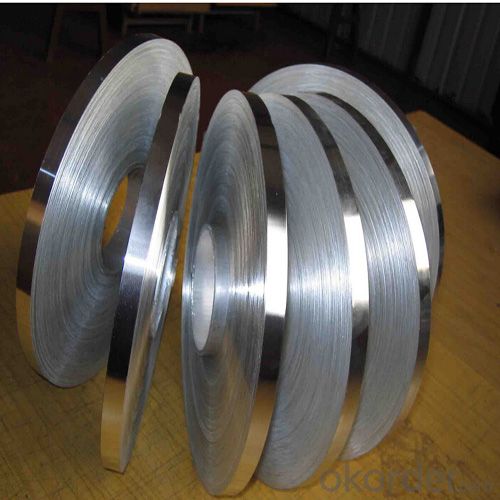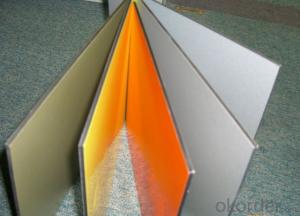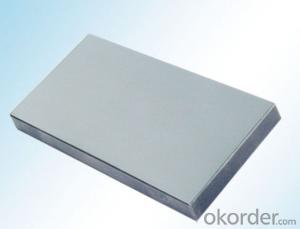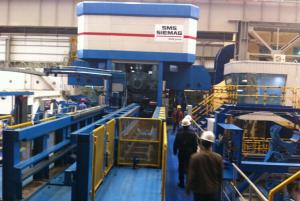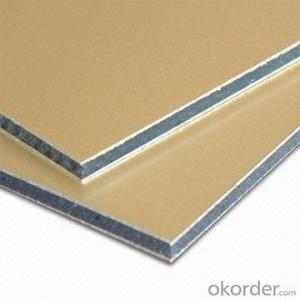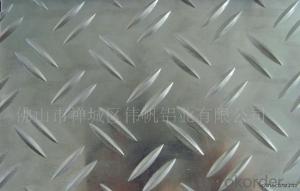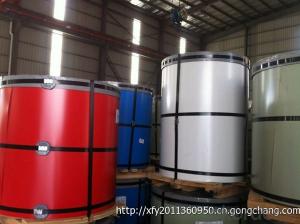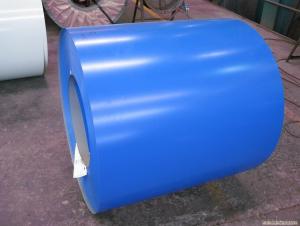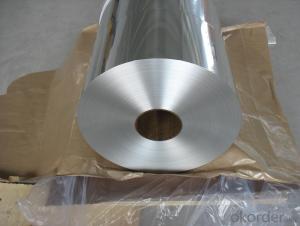4 X 8 Aviation Aluminum Sheets for High Quality Bus Stop Aluminium Alloy Coil
- Loading Port:
- Shanghai
- Payment Terms:
- TT OR LC
- Min Order Qty:
- 5 m.t.
- Supply Capability:
- 10000 m.t./month
OKorder Service Pledge
OKorder Financial Service
You Might Also Like
Specification
1.Structure of Aluminium Alloy Coil for Bus Stop Description:
We can produce aluminum sheet,color aluminum sheet and plastic composite panel base material. They are widely used in construction and decoration, hardware and electric appliances manufacture, automobile manufacture and other industrial and civil purposes, such as electronic capacitor, rice cooker, refrigerator, computer casting, lamp shade, air-conditioner, cosmetics cover and box, air-conditioner radiator, inner container of disinfecting cabinet, ceiling board, automobile motherboard, cover board and top board, etc.
2.Main Features of Aluminium Alloy Coil for Bus Stop :
Good Corrosion Resistance
Good Machinability
High Quality
Competitive Price
3. Aluminium Alloy Coil for Bus Stop Images:
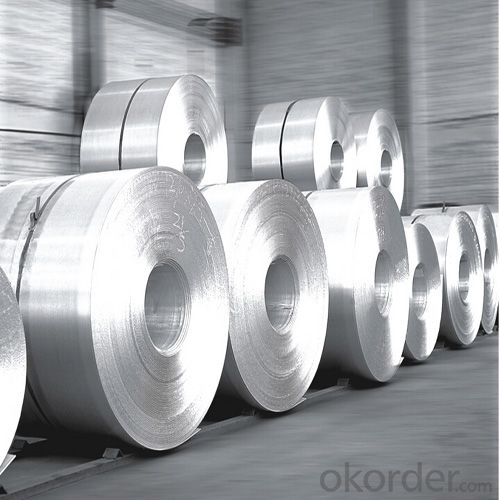
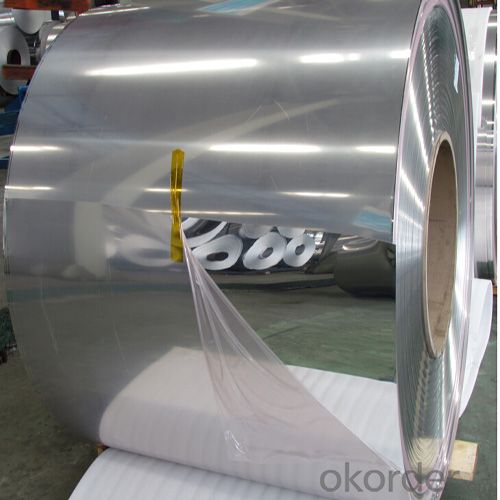
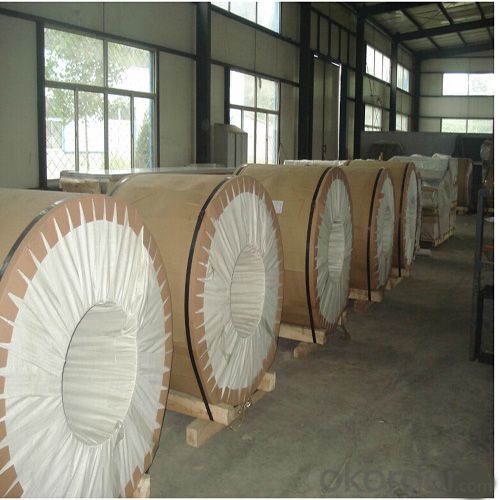
4. Aluminium Alloy Coil for Bus Stop Specification:
| Alloy No. | Thickness (mm) | Width (mm) | Length (mm) | Temper | |
| A1050,A1060, A1070,A1100 | 0.2-100 | 20-2200 | 20-8000 | O,H12,H22,H14,H16,H18, H24,H26,etc | |
| 3A21,A3003,A3105,A3004 | 0.2-100 | 20-2200 | 20-8000 | O,H14,H18,H24,etc | |
| A5052 ,A5005,A5083,A5754 | 0.2-100 | 20-2200 | 20-8000 | O,H18,H24,H32,H34,H111,H112 ,etc | |
| A6061,A6082,A6063 | 0.2-200 | 20-2200 | 20-8000 | T4,T6, T651,etc | |
| A8011 | 0.2-100 | 20-2200 | 20-8000 | O,H12,H22,H14,H16,H18,H24,H26, etc | |
5.FAQ
Q1.How long have you been in this product?
A1:More than 10 years.
Q2. What's the minium quantity(MOQ)?
A2. 5 Metric tons
Q3. How long is shipping time?
A3. 7 (ready-made products)-25 days(OEM)
Q4. How do you guarantee the quality?
A4. 1. Cooperating and Exchaning experience with sevral quoted aluminum companies
2. Japanese and Swiss production line and skilled works (regular training and testing)
3. more than 10 years production experience.
Q5. Do you have after sale service?
A5. Yes. Any quality problem occurs within one year, pls take photoes,we will be responsible.
- Q: do recycling centers take already compacted aluminum cans? Link is below. if not then why are so many people making homemade can crushers?
- Aluminium is one of the most and best recyclable material. I'm sure they do.
- Q: What are the different methods of surface treatment for aluminum sheets?
- There are several methods of surface treatment for aluminum sheets, each serving different purposes and achieving specific results. Some common methods include anodizing, chromate conversion coating, painting, and powder coating. Anodizing is a popular method used to enhance the corrosion resistance and durability of aluminum sheets. It involves immersing the sheets in an electrolytic bath and applying an electric current to create a controlled oxide layer on the surface. This process results in a protective and decorative coating that can be further colored or sealed. Chromate conversion coating, also known as chemical conversion coating or chromating, involves coating the aluminum sheets with a thin layer of chromate. This method provides excellent corrosion resistance and improves paint adhesion. Chromate conversion coatings can be clear or have a yellowish or iridescent appearance. Painting is another method widely used to protect aluminum sheets and enhance their aesthetic appeal. The sheets are typically pre-treated with a primer to improve adhesion, and then a topcoat is applied for protection and color. Painted aluminum sheets come in a vast range of colors and finishes, making them suitable for various applications. Powder coating is a durable and environmentally friendly method of surface treatment for aluminum sheets. It involves electrostatically applying a dry powder onto the sheets and then curing them in an oven. The powder melts and fuses to form a tough and attractive coating. Powder coating offers excellent resistance to corrosion, chemicals, and UV radiation. In addition to these methods, there are other surface treatment techniques such as polishing, buffing, and mechanical finishes that can be employed to achieve specific desired appearances or surface qualities. Overall, the choice of surface treatment method for aluminum sheets depends on factors such as the desired level of corrosion resistance, aesthetic requirements, environmental considerations, and the intended application of the sheets.
- Q: Is it possible to use aluminum sheets as a material for interior walls?
- <p>Yes, aluminum sheets can be used for interior walls. They are known for their durability, resistance to corrosion, and ease of maintenance. Aluminum sheets can also be painted or finished in various ways to match different interior design styles. They are lightweight, which makes them easy to install, and they provide good thermal insulation. However, it's important to consider the acoustic properties and the need for proper insulation to prevent condensation, especially in colder climates.</p>
- Q: Explain how the use of aluminum sheets can impact the energy efficiency of a building.
- <p>Aluminum sheets can significantly affect a building's energy efficiency due to their excellent thermal conductivity and reflective properties. They can be used in building construction to form a barrier against heat transfer, reducing the need for heating and cooling. Additionally, aluminum's reflective surface can help in reflecting sunlight, thereby reducing heat gain in the building. However, if not properly insulated, aluminum's high conductivity can lead to heat loss, reducing energy efficiency. Therefore, the use of aluminum sheets in buildings often requires a balance between their heat-reflective and heat-conductive properties to optimize energy efficiency.</p>
- Q: Can aluminum sheets be used for chemical storage containers?
- Yes, aluminum sheets can be used for chemical storage containers. Aluminum is known for its excellent corrosion resistance, which makes it suitable for storing a wide range of chemicals. It is also lightweight, durable, and non-reactive with most substances, making it a popular choice for chemical storage applications. Additionally, aluminum is easily formed and fabricated into various shapes and sizes, allowing for customized container designs. However, it is important to consider the specific chemical being stored and consult with experts to ensure compatibility and safety.
- Q: This question asks for the method to determine the quantity of aluminum sheet required for a specific project.
- <p>To calculate the amount of aluminum sheet needed for a project, first determine the dimensions of the area to be covered. Measure the length and width to find the total area in square units. If the project involves complex shapes, break it down into simpler shapes like rectangles and circles, and calculate the area for each. Multiply the total area by the thickness of the aluminum sheet required. Finally, consider any additional material for overlaps or wastage, typically around 5-10%. The total volume calculated will give you the amount of aluminum sheet needed for the project.</p>
- Q: What are the advantages of using aluminum sheets in automotive applications?
- Using aluminum sheets in automotive applications offers several advantages. Firstly, aluminum is a lightweight material, meaning it can significantly reduce the vehicle's overall weight, leading to improved fuel efficiency and lower emissions. This is crucial in today's environmentally conscious society. Secondly, aluminum sheets provide excellent corrosion resistance due to their oxide layer. This makes aluminum a durable choice for automotive applications, ensuring the vehicle maintains its structural integrity and aesthetic appeal over time. Additionally, aluminum has exceptional thermal conductivity, allowing for efficient heat dissipation. This makes it suitable for applications such as radiators and heat exchangers, preventing overheating and extending the lifespan of various vehicle components. Moreover, aluminum is highly malleable, allowing it to be easily formed into complex shapes and designs. This versatility enables greater design flexibility in automotive manufacturing, resulting in sleek and aerodynamic vehicles. Furthermore, aluminum is a recyclable material, aligning with the industry's focus on sustainability. Its recyclability contributes to a more circular economy, where materials can be reused and repurposed, reducing waste and minimizing environmental impact. Lastly, despite being lightweight, aluminum sheets have an excellent strength-to-weight ratio. This robustness allows for the construction of safe and reliable vehicles capable of withstanding various road conditions and potential impacts. In conclusion, the benefits of using aluminum sheets in automotive applications include weight reduction, corrosion resistance, thermal conductivity, design flexibility, recyclability, and a high strength-to-weight ratio. These advantages contribute to improved fuel efficiency, durability, safety, and environmental sustainability in the automotive industry.
- Q: Can 101 aluminum sheets be recycled?
- Yes, 101 aluminum sheets can be recycled.
- Q: Are aluminum sheets suitable for bulletproof applications?
- No, aluminum sheets are not suitable for bulletproof applications.
- Q: Can 101 aluminum sheets be used in electrical or electronic components?
- Yes, 101 aluminum sheets can be used in electrical or electronic components.
Send your message to us
4 X 8 Aviation Aluminum Sheets for High Quality Bus Stop Aluminium Alloy Coil
- Loading Port:
- Shanghai
- Payment Terms:
- TT OR LC
- Min Order Qty:
- 5 m.t.
- Supply Capability:
- 10000 m.t./month
OKorder Service Pledge
OKorder Financial Service
Similar products
Hot products
Hot Searches
Related keywords
